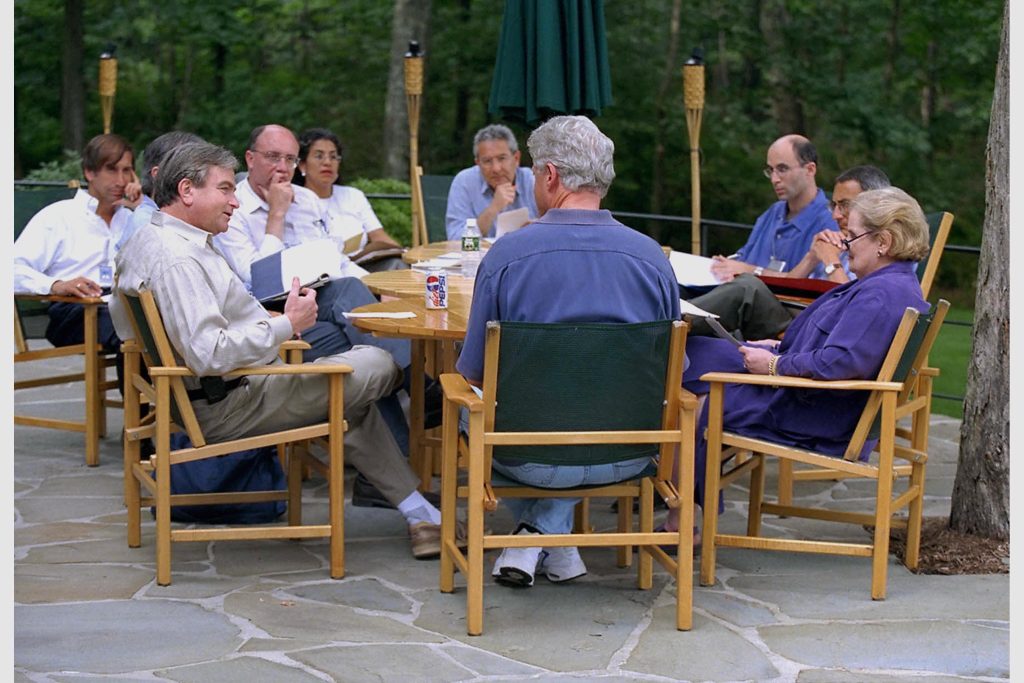Today, I watched the Vice President of the United States of America Kamala Harris, proudly declare in a video that together with President Biden, she stands with Ukraine, because “failure to do so will be a gift to Vladimir Putin”.
I ask again; am I living in an alternate universe?
Going by this assertion, they seemingly have no moral objection to giving a “gift” of this kind to Netanyahu, whom they have publicly given their full support as he seeks to destroy Palestine.
I commented thus:
Current affairs are revealing the double standards and showing us how our elected leaders are arbiters of unfair judgement calls that make no sense to the rest of us. Some of us already knew this, yet watching it unfold in real time is still shocking!
I am struggling to understand what makes a Ukrainian life more defendable than a Palestinian one. What makes it so easy to tell Putin to ceasefire, while enabling the Israeli Defence Forces (IDF)? Why are Palestinians being punished and killed indiscriminately in this supposed quest to destroy Hamas? What was the strategy to ensure that innocent lives were saved and war crimes are not committed in this conflict?
The questions abound!
Where exactly is the “safe zone” if North Gaza, Gaza, Deir-Al Balah, Khan Younis and Rafah have all been bombarded by the IDF? Where is the acknowledgment that this is now a humanitarian crisis that requires open condemnation? Why are the voices of Palestinian journalists with boots on the ground being silenced along with their allies on social media, while Israeli propaganda is rampant? How many more innocent children need to die? At what point do global leaders unify to say enough is enough?
While some might use the tragic events of October 7 as a justification for the current escalation of the conflict, the reality is that the tensions between these two groups have deep historical roots. The complex web of religious, cultural, and political factors that have driven the conflict span decades, if not centuries. It was this conflict that introduced me to the late Madeline Albright at the age of 15. I have previously spoken about how she was one of the first women I looked at in awe as she commanded power and respect in the midst of high-powered men when I watched the news. At the time I was too young to understand her politics. She was actively involved in efforts to forge peace between Israel and Palestine during her tenure as US Secretary of State from 1997 to 2001. She was part of the Clinton administration’s efforts to broker a lasting peace agreement between Israel and Palestine, a process that became known as the “Oslo Accords.” Albright played a key role in the negotiations, including meetings with Israeli and Palestinian leaders, but ultimately, the peace process did not lead to a lasting agreement.
To truly understand the current situation and work towards a peaceful resolution, it’s crucial to acknowledge and address the underlying issues that have been fuelling the conflict for generations. This means moving beyond simplistic narratives and engaging in a more nuanced, comprehensive dialogue that takes into account the multifaceted nature of the conflict.
“We believe peace must be just, lasting, comprehensive, leading to treaties based on normal relations and genuine peace between peoples, including between Israel and Syria and Israel and Lebanon. And we believe that peace must address the legitimate political rights of the Palestinian people.”
– Madeline Albright
In a world fraught with geopolitical tensions and conflicts, it is important to recognise that the responses of our global leaders can shape the course of history. Given the heavy-handedness with which Western countries tend to barge into so-called third-world countries to dethrone despotic leaders, it has been interesting to note the disparities that exist in addressing these two conflicts and holding leaders accountable for their actions.
In April 2011, I watched the news as then Ivorian President Laurent Gbagbo was arrested in a bunker beneath the presidential residence and removed from office in a rather disgraceful manner, live on television. This was following a disputed election and a violent political standoff with rival Alassane Ouattara. The events surrounding Gbagbo’s removal were widely reported in the international media. The political crisis in Ivory Coast and how Gbagbo was removed from office were controversial and raised questions about international involvement in domestic conflicts. It was certainly a significant moment in the country’s history and one that had wider implications for the region and beyond. In November of the same year, he was extradited to The Hague to stand trial before the International Criminal Court (ICC) on charges of crimes against humanity, although he was eventually acquitted of these charges in 2019.
The contrast between the response to Gbagbo’s removal and the reactions to other leaders like Netanyahu and Putin is notable. While Gbagbo was removed from power with the help of foreign intervention, the response to other leaders has been more nuanced and at times less decisive, highlighting the complexities of international diplomacy and the challenge of holding powerful leaders accountable for their actions. While the International Criminal Court’s ruling on Israel’s actions in Gaza has made waves internationally, the silence from Western leaders on the matter has been deafening. Despite the implications of the ruling on international law and the potential for accountability, many leaders in Europe and North America have chosen to stay silent or offer only tepid statements.
This selective silence is a stark contrast to the quick condemnations and calls for action that often follow other international conflicts and atrocities. It raises serious questions about the West’s commitment to justice and accountability, particularly in cases where the accused is an ally or strategic partner. The silence of Western leaders only reinforces the sense of impunity that powerful actors often enjoy, and underscores the need for consistent, principled leadership in the pursuit of justice.
Several factors contribute to the variations in responses, including geopolitical interests, media coverage, and public pressure. Geopolitical considerations may lead certain nations to adopt a more lenient stance on conflicts involving their allies. Media coverage plays a pivotal role in shaping public perception, influencing leaders to tailor their responses accordingly. Public pressure, or the lack thereof, can also sway leaders in their approach to conflicts.
Examining specific actions or decisions made by leaders further illuminates the issue. Instances of selective condemnations, biased diplomatic manoeuvres, or the provision of military aid to conflicting parties showcase the need for consistent responses. Such actions undermine the principles of justice and hinder the resolution of conflicts.
Consistency in responses to conflicts is paramount for promoting peace and justice worldwide. Inconsistencies not only erode trust in international institutions but also perpetuate the cycles of violence. A call for consistent and principled responses serves as a foundation for building a more just and stable world.
As a civil society we have a responsibility to arm ourselves with information about the complexities that shape international relations. We are encouraged to use our voices to engage in thoughtful discourse, and to seek ways to promote fair and effective conflict resolution. By understanding these intricacies, we contribute to a more informed and conscientious global community, fostering a future where the pursuit of peace takes precedence over geopolitical divides or allyship.
As voters, we cannot afford to forget those who have chosen the wrong side of history. As the general election approaches in the UK, I am at a loss. Outside of Rishi Sunak’s open support for Netanyahu, from Brexiting without a plan, to the mishandling of the response to a global pandemic, the most diabolical years in the UK that I can recall in my living memory have been under the leadership of the Conservative Party. On the other hand, Keir Starmer seems to have only just found his voice along with the courage to utter the word “ceasefire” and it is still not loud enough. I still don’t know if, how or who I am voting for in the general elections but what I do know for certain is that if I do go out to vote, I would not be leaving my moral compass at home!
“In a world where the powerful feed on the powerless, silence is not an option.”
– Arundhati Roy
From the desk of the disruptor; a display of my aversion to conforming to societal expectations, my unpopular & often uncensored opinions & observations, & my refusal to be trapped by dogma. You can find me here socially commenting and unapologetically shaking tables for whatever it is I truly believe in.
Featured Image Fact Check: An image of then Secretary of State Madeline Albright in discussions with high-powered men including then U.S. President Bill Clinton at Camp David, during Israeli-Palestinian negotiations in 2000. This striking visual served as a testament to her influence and leadership in international politics, symbolising a significant step towards female representation in traditionally male-dominated political arenas. This image serves as an enduring reminder of the importance of women’s voices in global decision-making processes. Credit: White House Photo via Israel GPO.






